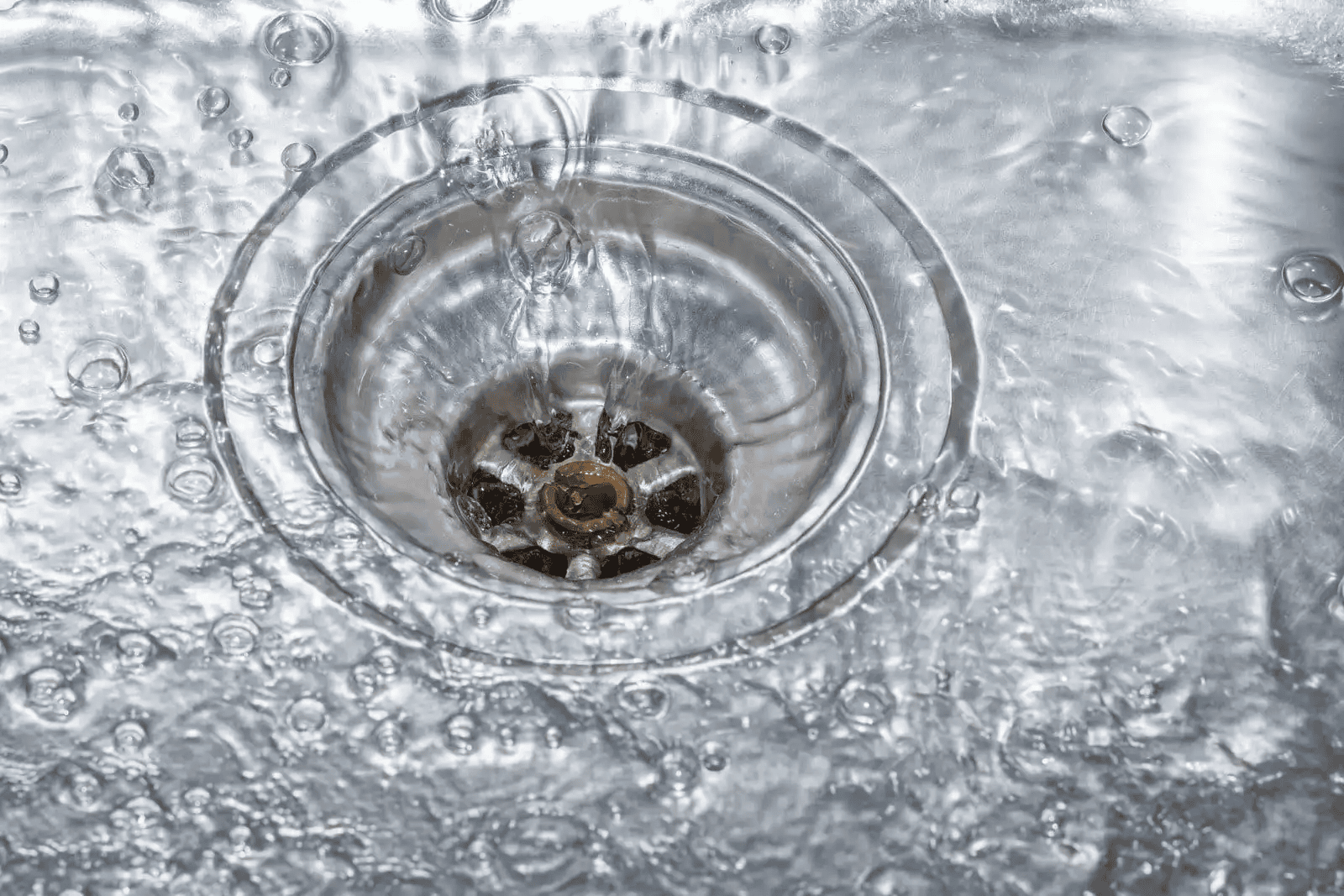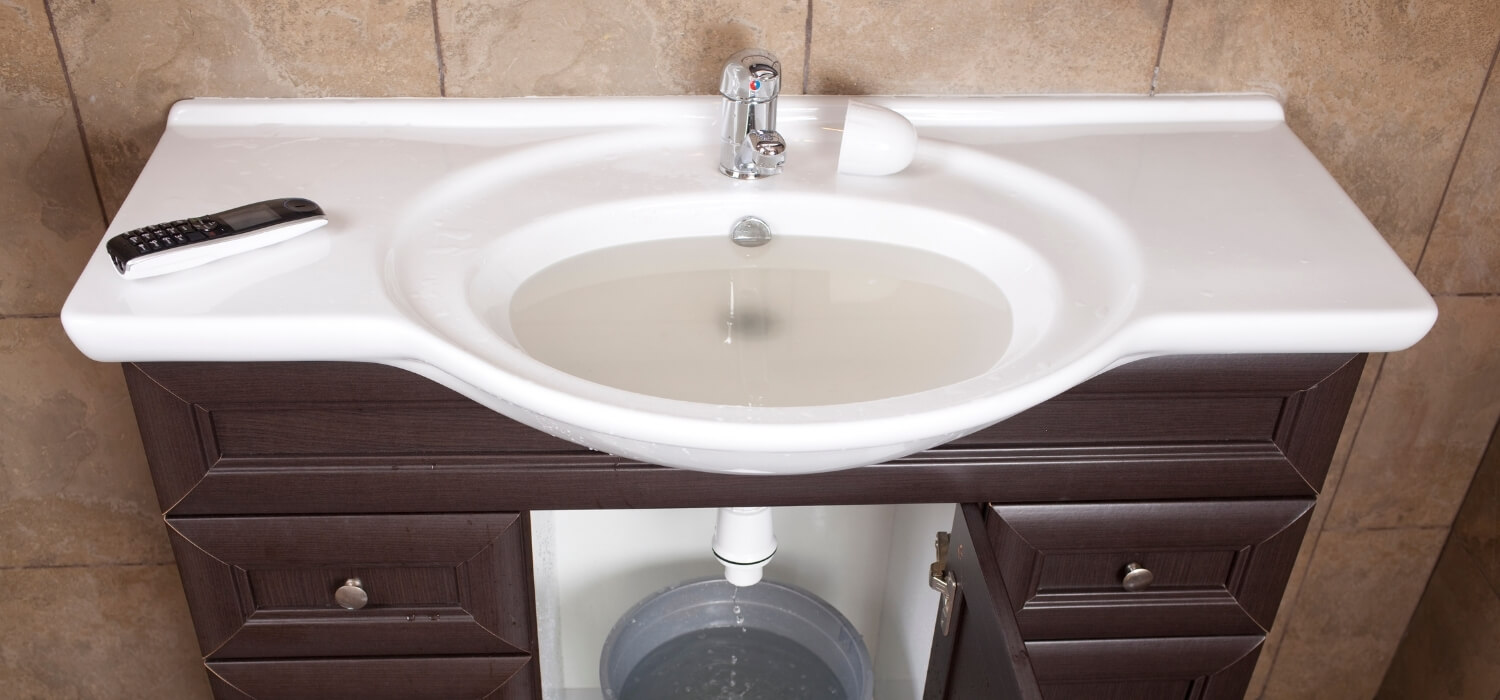Any plumbing issue is annoying, but a slow draining sink can be particularly frustrating. Sinks that drain slowly are not completely clogged—slow draining sinks are different from fully clogged sinks in that they are still capable of draining, but only partially or very slowly—but they are certainly not fully functional.
A slow-draining sink can be just as non-functional as a clogged sink. Just like a clogged sink, this can be very difficult or even impossible to use effectively—and the backup from a slow draining sink that drains only partially can carry harmful bacteria and contribute to the growth of mold and mildew in your pipes just like a fully clogged sink. Slow draining sinks can also cause bad smells and the backup caused by the blockage of a slow draining sink can even stain your sink. Regardless, having a slow draining sink in your kitchen or bathroom can severely disrupt your daily life.
Many slow draining sinks require the intervention of a professional plumber. However, this is not always the case. Understanding why your sink may be draining as slowly as it is can help you determine whether assessment and repair of the problem by a professional plumber are necessary or if the issue is one that you can fix on your own.

Reasons For a Slow Draining Sink
Of course, attempting to fix your slow draining sink by yourself comes with risks. If you are concerned about damaging your home plumbing system, it is best to call a professional plumber to come out and perform the necessary repairs on your malfunctioning sink. Keep reading to learn 5 possible reasons why your sink is draining slowly.
1. Soap Scum
Soap is meant to go down your sink’s drain. After all, one of the main purposes of a sink is to allow you to wash your hands with soap and water. That being said, soap scum can build up in your sink’s drain over time and accumulate along the walls of the pipe that runs under the drain.
This buildup of soap scum in the pipe under your sink’s drain can cause your sink to drain more slowly than usual—even liquid soap can harden over time into soap scum that can cause your sink to drain slowly.
2. Aging Pipes
Your slow draining sink might be due to natural wear and tear on your pipes. Over time, pipes deteriorate and corrode.
Corrosion inside aging pipes can cause a partial blockage that leads to a slow draining sink. In this case, the only real solution is to replace your old pipes that have deteriorated and corroded.
3. Minor Clogs
Slow draining sinks can be confusing because they are not completely clogged. Some drainage still occurs—it just happens very slowly. Oftentimes, a minor clog or blockage is the reason behind a slow draining sink.
Chunks of food, hair, small items that accidentally fell down the sink’s drain, etc. can all cause minor clogs that do not completely prevent your sink from draining but cause your sink to drain very slowly.
4. Grease Buildup
You might not think anything of pouring oil or grease down the drain in your kitchen sink. Many people don’t realize the havoc that a buildup of grease can wreak on your home plumbing system.
When you pour grease and oil from a pan or a dish down the drain of your kitchen sink, it can harden and cause a blockage in the pipe underneath your sink’s drain. When you are cooking with oil or cooking food that produces grease, it is best to pour the grease or oil into the trash rather than down your sink’s drain to prevent grease buildup and blockages.
5. P-Trap Problems
A P-trap is a curved section underneath the drains of the sinks in your kitchen and bathrooms. The purpose of the P-trap is to—as its name suggests—trap debris before it travels further down your pipes and causes a complete clog.
However, P-traps can become overly full when the debris that enters them builds up over time. When this happens, the full P-trap can cause your sink to drain more slowly as the water in your sink struggles to make its way past the full P-trap to flow into the pipe below the P-trap.
If you are struggling with a slow draining sink at your home, contact us today.


